Stress is a natural mental reaction to harmful situations. Anything from daily responsibilities like family and work to serious events like illnesses and war can cause stress. For short-term situations, stress may be good for human health by stimulating the body to release hormones that enhance the heart and breathing rates. However, if stress levels stay elevated for a long time, it can negatively affect our health so that learning how stress affects the body is a very important mission!
If you are experiencing chronic stress and want to know what health problems you have to face, this article on Healthy Guide is what you should not skip. Actually, stress can cause many potential problems in both physical and mental health, so you should not ignore it, yet try to manage it as soon as possible. Let’s check out how stress affects the body and health in reality.
CONTENTS
I. Common Symptoms Of Stress
Before learning about how stress affects the body, we need to know how we can realize when stress attacks our health. Stress can cause lots of symptoms and negatively affect our overall well-being. Some common symptoms of stress are:
- Irritability
- Depression
- Anxiety
- Headaches
- Insomnia
- Not eating enough or overeating
- Drug or alcohol abuse
- Social withdrawal
II. How Stress Affects The Body – 20 Potential Health Problems
We all know that chronic stress is not good for human heath, but we may not know how it affects the body. Now, in this article, we will show you some of the potential health problems you can experience if you are under stress for a long period of time. Look at the following information to learn about how stress affects the body with some of the worst health issues we may need to face due to stress and how our body responds to its signs and symptoms.
1. Increase The Risk Of Stroke And Heart Attack
Stress hormones negatively affect the respiratory and cardiovascular systems. When we get stressed, we may breathe faster to quickly transfer oxygen-rich blood to the body. For people with breathing problem like emphysema or asthma, stress can make them more difficult to breathe. Besides, stress hormones also make our heart pump faster in order to divert more oxygen to the tissues and muscles. However, this is also a cause of increased blood pressure. Therefore, chronic stress can make the heart work too hard, increasing the risks for developing a stroke or heart attack.
List of Top 15 Effective Ways On How To Maintain A Healthy Heart will show you some of natural treatments that can help you maintain a healthy heart, so check it out!
2. How Stress Affects The Body – Weaken Immune System
For immediate situations, stress can stimulate the immune system, helping us avoid infections and speed up the healing process. However, chronic stress will weaken the immune system and make patients more susceptible to viral infections. Moreover, stress can also slow down the recovery from an illness or injury. Remember this as it also make us know more about how stress affects the body and health.
3. Make Us Exhausted
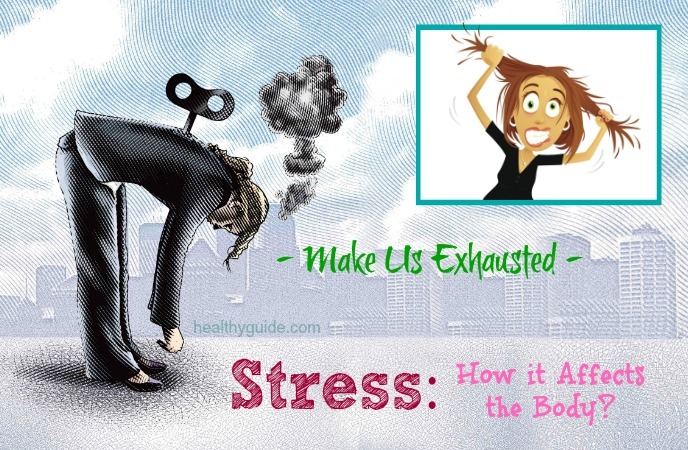
Aside from keeping us up at night, stress can release the stress hormone called cortisol into the bloodstream. This hormone increases the heartbeat, gives the brain more oxygen, and provides the body with extra energy to help resolve that stress. However, chronic stress can make us feel exhausted all day. Fortunately, working out 3 hours a week can help keep stress hormone levels in check.
4. Cause Food Cravings
Studies found there was a link between a stress hormone called cortisol and cravings for sugar and fat. This hormone may bind to receptors in the brain, which are responsible for controlling food intake. To deal with it, the key is to be ready when stress hits. That means we should stock up on healthy foods, or ensure we do not have unhealthy snacks on hand for the times when a food craving is likely.
5. Cause Insomnia
Studies found that stressful events can lead to insomnia that passes when the stress is over. Meanwhile, long-term exposure to stress can disrupt sleep and even cause more serious sleep disorders. To deal with this, we should focus on sleep hygiene, try yoga or other stress-reducing activities during the day. Keep reading to know more about how stress affects the body in reality and how we can realize the attacks of it soon.
6. Affect Memory
The high levels of stress hormone cortisol can negatively affect the brain’s ability to create new memories. Besides, the stress hormone also affects neurotransmitters that brain cells utilize to communicate with each other, making it hard to retrieve memories or think straight. To limit stress in our daily lives, we should try meditation.
7. Affect The Ability To Get Pregnant
The stresses of daily life may not affect a pregnancy, but chronic stress can increase the risks of getting premature labor. Eventually, some studies found that very high stress levels can affect the development of fetal brain. Moreover, stress can affect the ability to get pregnant because it can affect the menstrual cycle such as causing irregular periods or more painful periods. Stress can magnify the menopause symptoms as well. According to a study, women who had the highest stress levels were 12% less likely to conceive than those with the lowest stress levels. Prenatal yoga as well as other stress-reduction methods can be helpful. Therefore, it is very important to consult a doctor if you are pregnant and severely stressed.
8. Increase Blood Pressure
A stressful situation can temporarily increase the blood pressure by constricting the blood vessels and boosting up your heartbeat. However, these effects will go away when the stress is over. Although it is unsure whether chronic stress can have pregnant changes in the blood pressure, stress-reducing techniques like meditation and mindfulness may be helpful. Besides, there are some natural treatments for reducing blood pressure like diet and exercise.
9. How Stress Affects The Body – Increase Blood Sugar
Stress can increase blood sugar as well; and when learning about how stress affects the body, you cannot forget mentioning this issue . For people suffering from type 2 diabetes, they may find that their blood sugar is higher when they get stressed. Another study also suggested that stress might increase the risk for getting diabetes too. To keep the blood sugar under control, we need to change what we eat, exercise more or take medication.
10. Cause Headaches
The stress hormone called cortisol can lead to vascular changes, leaving a tension headache or migraine. Moreover, stress also cause muscle tension, hence worsening the pain of a headache or migraine. Apart from treating the symptoms of headache, we should also make changes in diet plan and lifestyle habits.
11. Cause Back Pain
Stress can cause an acute back pain and contribute to chronic pain. A recent study found that people suffering from stress and anxiety are more like to experience back pain.
12. Cause Fat Storage
The stress hormone cortisol can also increase the storage of fat tissue in the body and simultaneously expand the size of fat cells. Studies have found that high cortisol levels can cause belly fat. Fortunately, performing exercise can be effective in controlling stress and keeping belly fat under control.
13. Cause Digestive Problems
Stress can cause or worsen some digestive problems such as heartburn, diarrhea and stomach cramping. This is just a small thing expressing how stress affects the body and health. Keep reading for more health facts related to this problem.
14. How Stress Affects The Body – Cause Hair Loss And Hair Gray
Stress is one of the most common of hair loss. Besides, it can also contribute to trichotillomania, in which patients have an urge to pull out their hair from the hair scalp. Plus, there is little evidence that anxiety and stress can turn the hair gray.
15. Cause Acne And Psoriasis
Most acne sufferers have reported that they are more likely to have outbreaks during stressful time periods. The reason for that may be the increase of male hormones called androgens. Besides, stress can also cause psoriasis or make this skin condition more severe. Nowadays, many doctors start including stress-management techniques like medication and biofeedback in their treatment programs for these skin conditions.
16. Cause Colds And Flu
People exposed to viruses causing common colds are less likely to struggle with the germs successfully if they are getting stressed. Studies found that the immune cells of stress sufferers may be less sensitive to inflammation-fighting hormone, making them more prone to serious diseases.
17. Worsen Asthma
Stress seems to worsen asthma in those who experience lung condition. According to a study, children who experienced severe stress had increased risks of an asthma attack compared to those who are not under stress. The reason for that is unsure, but stress may weaken the immune response to triggering factors for asthma such as dust, pollen, or animal dander.
18. How Stress Affects The Body – Experience Seizures
A recent study found that a few people who are sensitive to stress can suffer from seizure-like symptoms like convulsions. Some people can experience emotional trauma.
19. Lose Sex Desire
Stress causes the exhausting feeling in both the mind and body. It is common to lose sex desire when we are under constant stress. Short-term stress can make men produce more male hormone testosterone, but this is only temporary. If a man has stress over long periods of time, his testosterone levels will begin to drop, hence interfering with sperm production and leading to erectile dysfunction or impotence. Moreover, chronic stress can also increase the risk of getting infection for the prostate and testes.
20. Cause Constipation
Those knots in your stomach could me more than just an uneasy feeling. Chronic stress can impact the hormones released by your thyroid glands, which regulate your metabolism among other things. If these hormones get off track, it can lead to constipation. When you’re feeling this symptom, head to the gym, drink lots of fluids, increase your fiber intake, or take a laxative if you need to.
III. How To Manage Stressful Situations Naturally
To relieve stress and anxiety, we can apply some of the following stress-reducing techniques at home. All of these techniques can help us manage our stressful situations naturally and effectively:
- Listening to music: Listening to relaxing music has positive effects on the body and brain, such as reducing blood pressure, and reducing stress hormone cortisol.
- Calling a friend: Talking to a friend about your stress can be helpful.
- Exercise: Exercising regularly can lower the stress hormone, improve the mood, improve the sleep quality, and promote mental health.
- Taking supplements: Some great stress-reducing supplement options include lemon balm, Ashwagandha, omega-3s fatty acids, valerian, green tea, kava-kava, etc. However, we should consult a doctor before taking any supplements because they can interact with medications or cause unwanted side effects.
- Reducing the caffeine intake: Generally, 2-3 cups of coffee per day is a moderate amount.
- Using essential oils: Some scents contain soothing properties and they include rose, bergamot, lavender, Roman chamomile, frankincense, ylang ylang, sandalwood, geranum essential oils.
- Chewing gum: This trick promotes blood circulation to the brain and relaxes both the mind and the body.
- Laughing: It gives more oxygen to the body, relieves the stress response, relaxes the muscles and improves the immunity system. Watching funny videos, and hanging out with a funny friend are great options.
- Practicing mindfulness: It helps increase self-esteem, hence reducing symptoms of anxiety.
Stress is an unavoidable part of our lives, and it can cause many serious mental and physical health problems. Therefore, we should not ignore the symptoms of stress. Fortunately, stress is manageable. By taking some patience and applying a few stress-reducing techniques, we can manage and treat stress symptoms.
After reading this entire article and discovering how stress affects the body and health in reality, we hope that you can understand the importance of managing the stress levels and then try to find the ways to relieve stress and anxiety as soon as possible. If you have any ideas about this topic or you know other health problems as a result of stress, remember to leave your comments in the comment box below. Also, if you want to discover other simple yet effective health tips, do not forget to visit our How To Page.

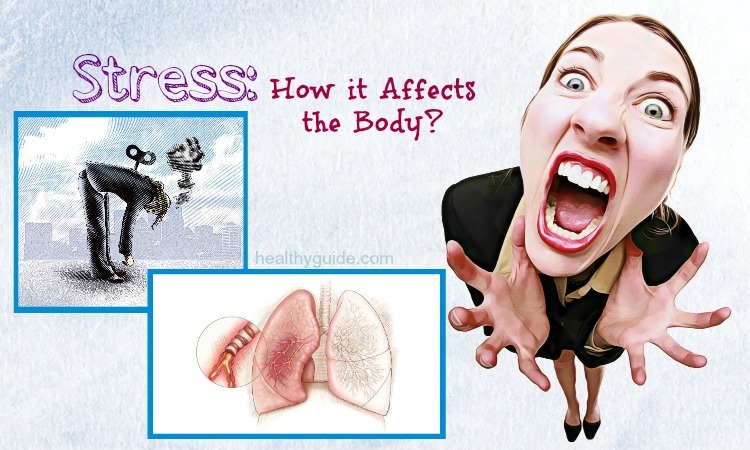
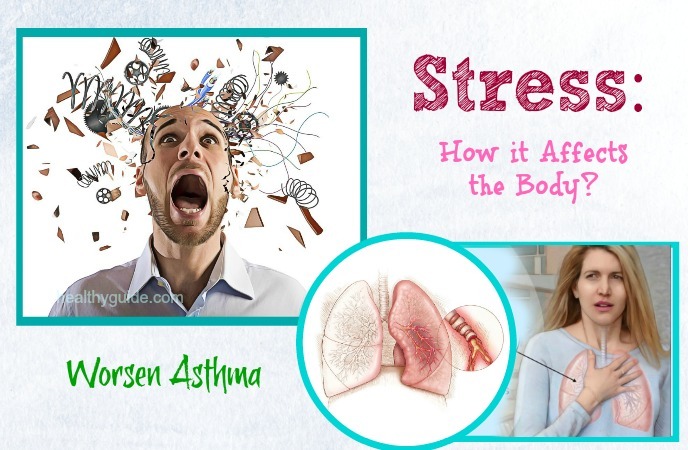




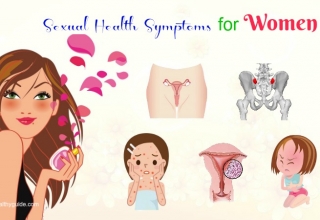






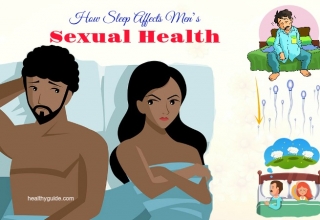

















Leave a Reply